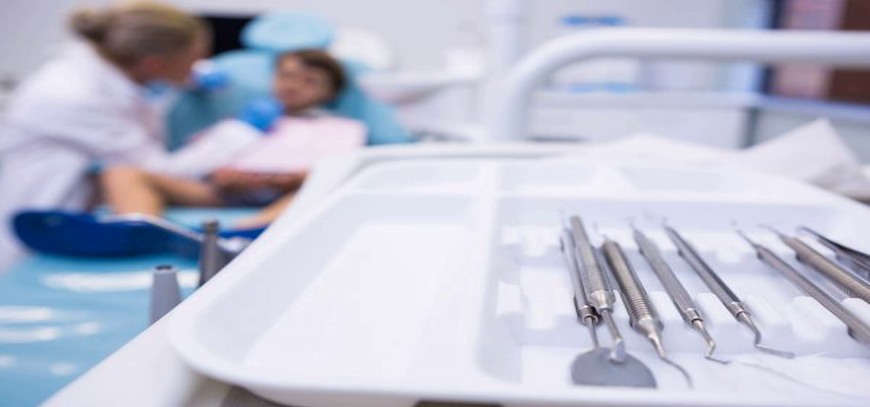Other Surgeries

Dental Surgery is surgery of the teeth and jaw bones. There are several reasons why people choose and undergo a dental surgery. Dental surgery is directly related to the dental and oral health and care. There are different types of dental surgeries. The dental surgeries are performed by our qualified Dental and Oral health Professionals. Root canal treatments and Extractions also come under dental surgeries; these however can be conducted by a dentist in a clinic.
Different types of dental surgries:
Endodontics (surgery involving the pulp or root of the tooth) Root canal.
Pulpotomy: The opening of the pulp chamber of the tooth to acquiesce an infection to drain, usually a precursor to a root canal
Pulpectomy: The removal of the pulp from the pulp chamber to transiently relieve pain; usually a precursor to a root canal.
Apicoectomy : A root-end resection. Sometimes a root canal alone will not be enough to relieve pain and the end of the tooth called the apex that will be detached by entering through the gingiva and surgically obtaining the diseased material.
Crowns or Caps: Artificial coverings.
Veneers: Artificial coverings similar to above, except that they only cover the forth (labial or buccel) shallow of the tooth, usually for aesthetic purposes only.
Bridges: A fixed prosthesis in which more than two crowns are connected together, which replace a missing tooth or teeth through a bridge. Normally used after an extraction.
Implants: A procedure in which a titanium implant is surgically placed in the bone (mandible or maxilla), allowed to heal and 4–6 months later an artificial tooth is connected to the implant by cement or by a screw.
Dentures (false teeth): A partial or complete set of dentition which either attached to neighboring teeth using a metal or plastic grasps or to the gingival or palatal surface by with the help of adhesive.
Orthodontics: Also called orthodontics and dentofacial orthopedics
Implants and implant-supported prosthesis: Also a type of orthodontic treatment as it involves bones
Extraction: A procedure in which a diseased, redundant, or problematic tooth is removed either by pulling or cutting off. This procedure can be done under local or general anesthesia and is very common. Many people have their wisdom teeth removed before they become problematic.
Fiberotomy: A procedure to cut off the fibers around a tooth, preventing it from relapsing
Periodontics: It also one of the specialties of dentistry that deals with supporting structures of teeth, as well as diseases and conditions that affect them.
Cosmetic Dental Surgeries: Deals with the misalignment of the jaws or the dental implants.
Different Types of Dental & Oral Surgeons
Problems with the teeth and gums can be very complex, and often may require a unique kind of oral surgeon or specialist. In most cases, these dental specialists are contacted as they generally deal with more serious dental issues and provide various and extensive surgical services based on their area of specialty and patient need. Oral surgeons may also be called on to handle various tasks, such as diagnosing and treating an injury, or repairing a functional defect of the hard and soft tissues of the mouth.
Endodontist
Many patients need a root canal, and an endodontist is the dental specialist who may be called in for this procedure. They understand the pathology, morphology, and physiology of dental pulp and its related tissues. This includes diseases and trauma that affect the pulp and periarticular tissues.
Prosthodontist
Broken and missing teeth have a major impact on a person’s smile. A prosthodontist is trained to deal with restoring and replacing teeth using a variety of techniques, most of which are designed to try and save as many natural teeth as possible. They also treat patients suffering from a range of disorders such as sleep apnea and TMJ.
Orthodontist
Numerous individuals suffer from irregularities of the mouth and may be referred to an orthodontist. This specialist focuses on the prevention, development, and correction of these problems, and they address the teeth, jaws, and person’s bite. Furthermore, orthodontists diagnose and treat jaw disorders and facial abnormalities.
Periodontist
A person suffering from a gum disease may need to see a periodontist. They treat problems of the teeth and surrounding soft tissues.
Oral Maxillofacial Surgeon
An oral maxillofacial surgeon (OMS) is a specialist who is trained to perform complex surgeries, including dental implants. Furthermore, since OMSs have also studied medicine and anesthesiology, they have the extensive training and expertise necessary to take on tasks such as removing teeth (dental extractions) that are impacted, as well as performing surgical reconstruction of the face when necessary. After these surgeons complete their surgical medical residency program, they are licensed to administer any level of anesthesia required. What makes our team at the Oral Maxillofacial Surgeons of Houston uniquely stand out is that all our surgeons and specialists are trained in both medicine and dentistry.
Patients are referred to this kind of specialist by their dentist. When an oral surgeon is needed, the oral maxillofacial surgeon is called for anything an oral surgeon may be trained to do, and more. For example, if a person requires surgery for a cleft lip/palate, has a misaligned bite, needs teeth extracted- with or without bone grafting, needs teeth replaced with implants, or has a growth or an oral tumor, an OMS is called. A physician may also refer a patient suffering from sleep apnea to this specialized dental surgeon as well.
